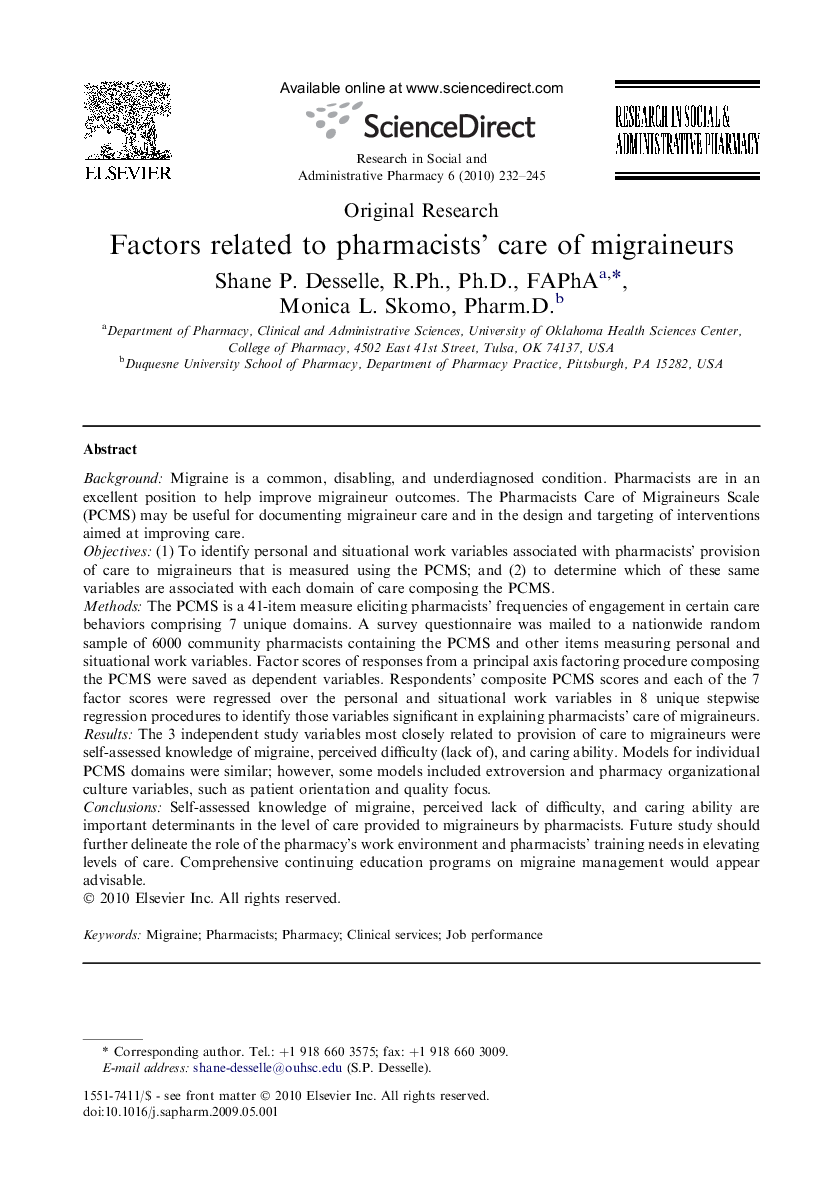| Article ID | Journal | Published Year | Pages | File Type |
|---|---|---|---|---|
| 2509111 | Research in Social and Administrative Pharmacy | 2010 | 14 Pages |
BackgroundMigraine is a common, disabling, and underdiagnosed condition. Pharmacists are in an excellent position to help improve migraineur outcomes. The Pharmacists Care of Migraineurs Scale (PCMS) may be useful for documenting migraineur care and in the design and targeting of interventions aimed at improving care.Objectives(1) To identify personal and situational work variables associated with pharmacists' provision of care to migraineurs that is measured using the PCMS; and (2) to determine which of these same variables are associated with each domain of care composing the PCMS.MethodsThe PCMS is a 41-item measure eliciting pharmacists' frequencies of engagement in certain care behaviors comprising 7 unique domains. A survey questionnaire was mailed to a nationwide random sample of 6000 community pharmacists containing the PCMS and other items measuring personal and situational work variables. Factor scores of responses from a principal axis factoring procedure composing the PCMS were saved as dependent variables. Respondents' composite PCMS scores and each of the 7 factor scores were regressed over the personal and situational work variables in 8 unique stepwise regression procedures to identify those variables significant in explaining pharmacists' care of migraineurs.ResultsThe 3 independent study variables most closely related to provision of care to migraineurs were self-assessed knowledge of migraine, perceived difficulty (lack of), and caring ability. Models for individual PCMS domains were similar; however, some models included extroversion and pharmacy organizational culture variables, such as patient orientation and quality focus.ConclusionsSelf-assessed knowledge of migraine, perceived lack of difficulty, and caring ability are important determinants in the level of care provided to migraineurs by pharmacists. Future study should further delineate the role of the pharmacy's work environment and pharmacists' training needs in elevating levels of care. Comprehensive continuing education programs on migraine management would appear advisable.
